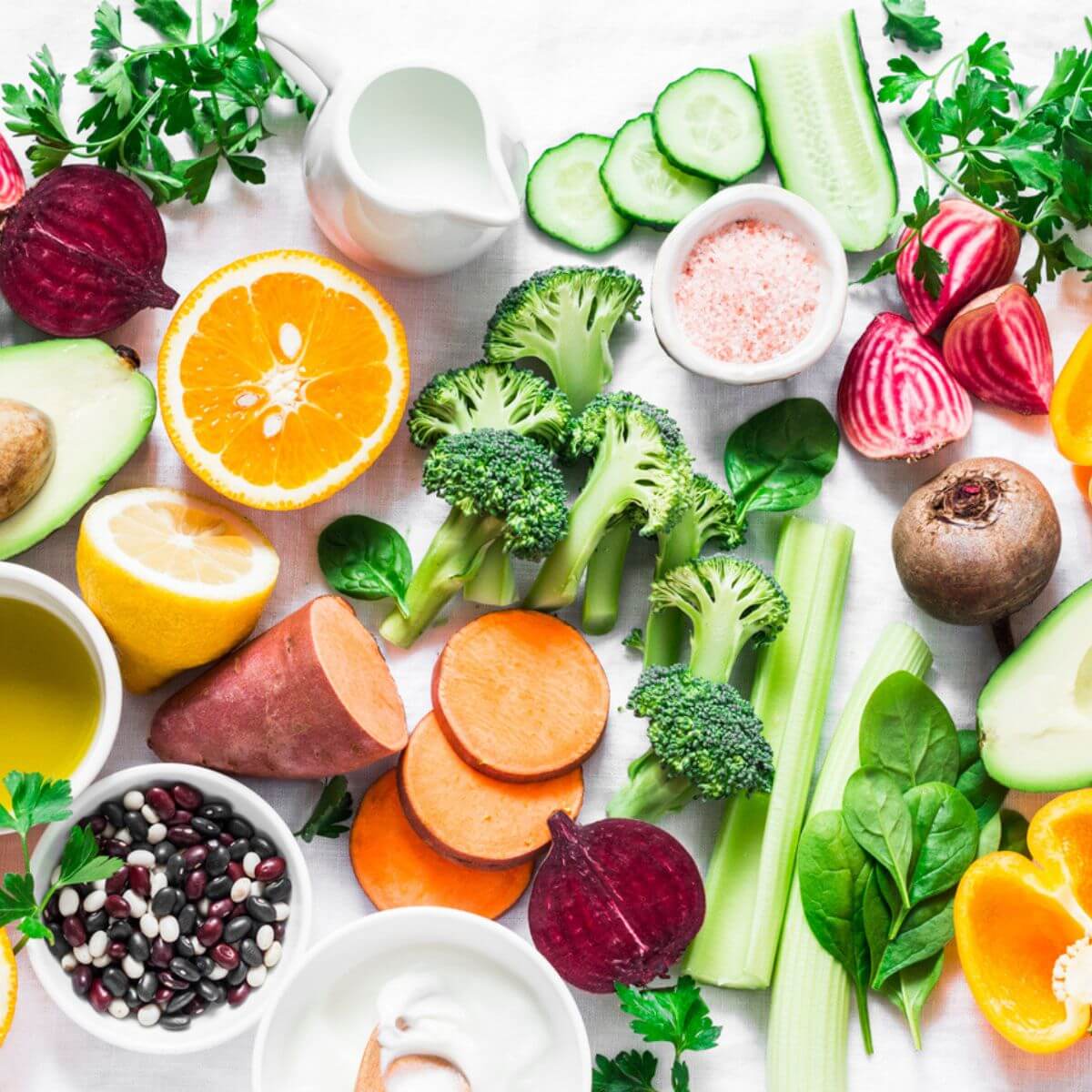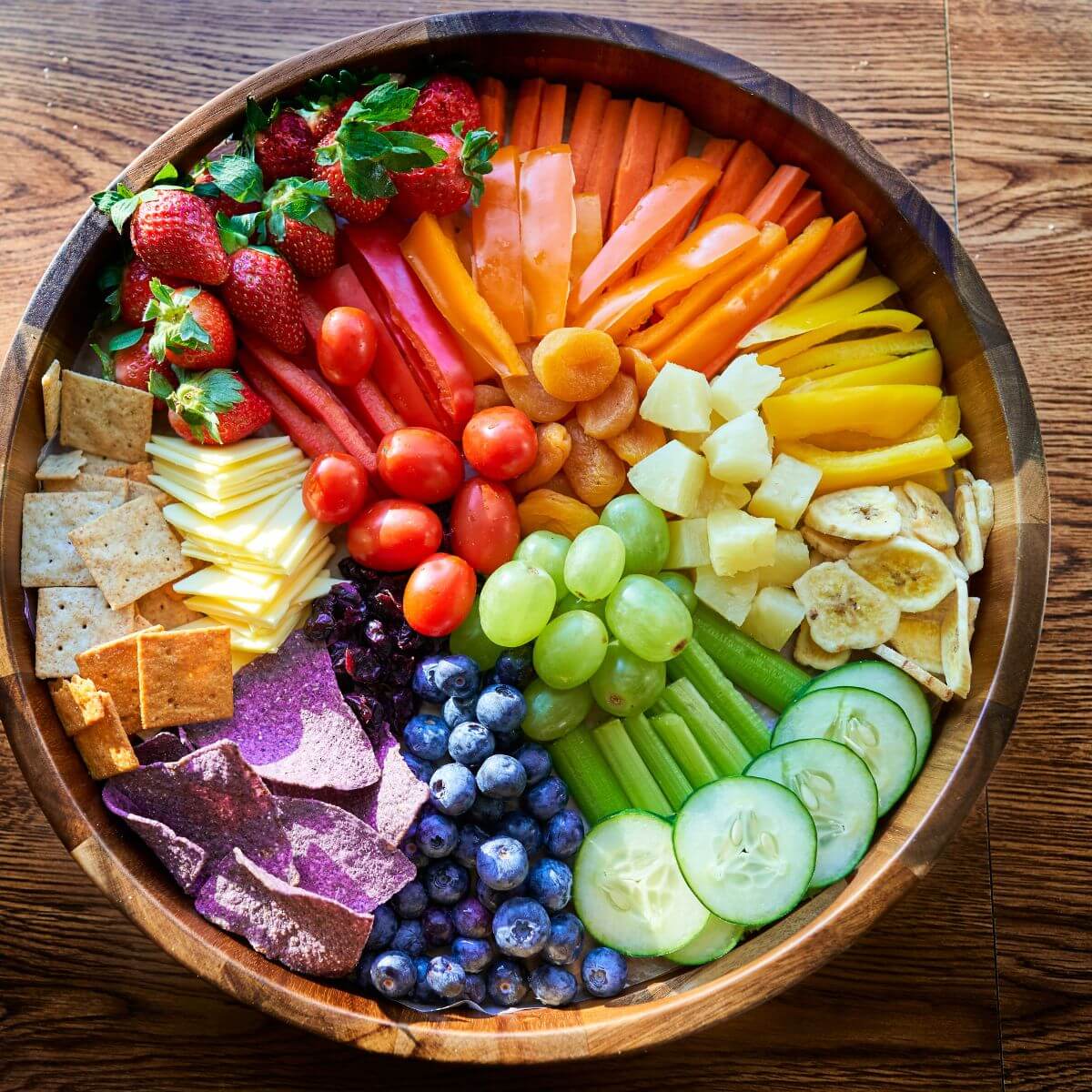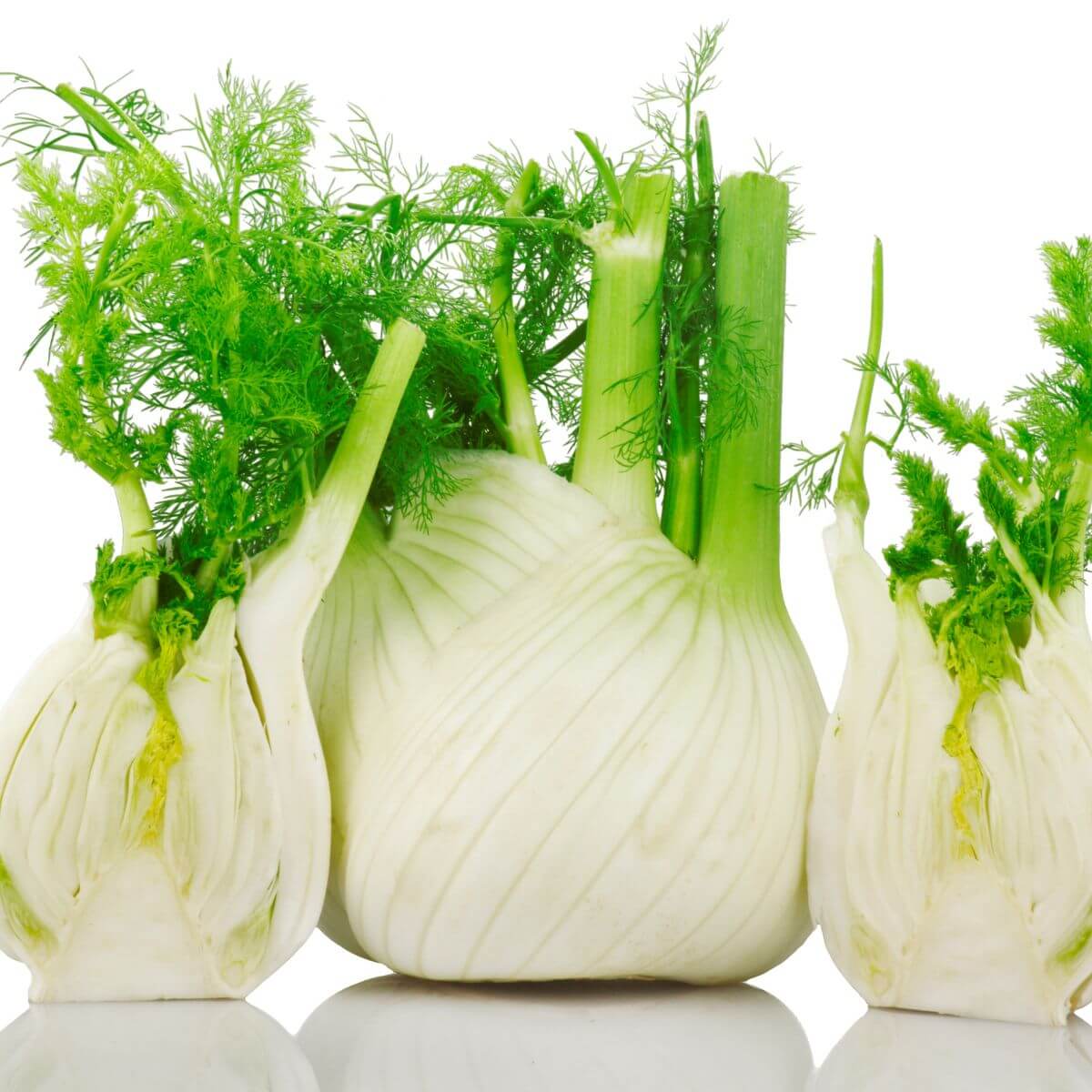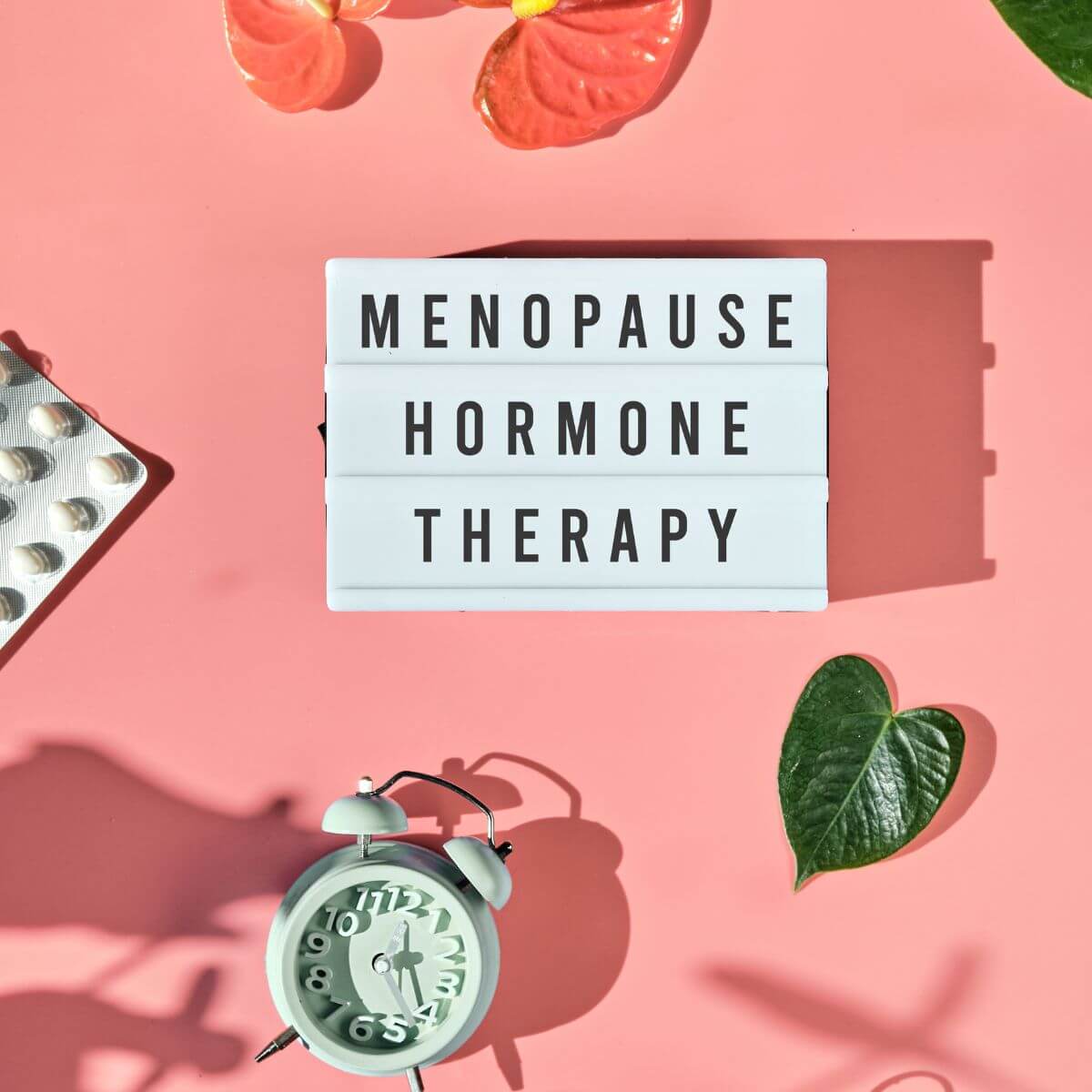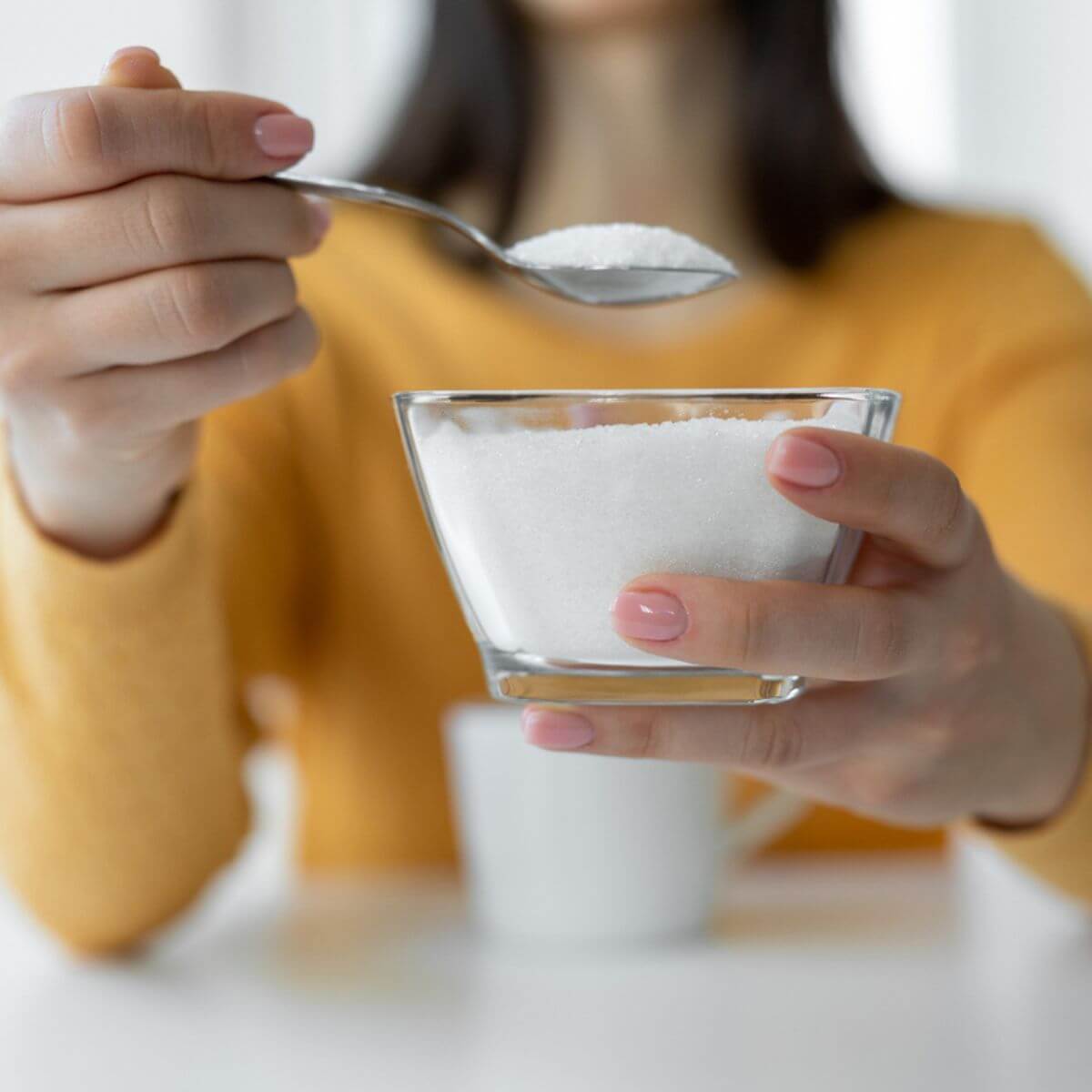Skin aging and nutrition are such a hot topic lately. What vitamins are good for aging skin? Why are vitamins important for skin health? Did you know that smart nutrition is an excellent preventive measure for collagen production in your skin? Let’s discuss.

Your Skin and Aging Effects!
The skin is the largest organ of the body. The aging process also significantly affects it.
That is to say estrogen receptors have been detected on the cellular components of the skin. This lowers estrogen levels that influence skin-cell metabolism.
Changes in the skin collagen lead to diminished elasticity and skin strength. That is why there is also a distinct reduction of collagen production after menopause.
Changes in vascularity are typically found following menopause. For example, you might notice more pronounced veins in your skin following menopause. Dermal blood flow decreases significantly in postmenopausal women.
Oh those darn hormones.
Repair functions in the skin are regulated by a group of chemicals called cytokines. These are the epidermal cell growth factor (ECGF), transforming growth factor (TGF), and angiogenesis factor.
AF stimulates the rebuilding of the microvascular system within the skin. TGF and EGF stimulate rapid cell proliferation for the replacement of dead or damaged cells.
Smart Nutrition and Collagen Intake!
Excessive exposure to UV rays causes oxidation of the collagen and elastin fibers in this skin. This, in turn, causes ‘cross-linking.
That is to say, cross-linking causes the collagen in the skin to become tangled and stiffen. This results in sagging and loss of skin elasticity. That allows facial expressions to put deep lines and wrinkles in the skin.
Some of this UV damage that causes skin aging can be prevented by using sunscreens and sunblocks. Also, some of this damage can be reversed by the use of ‘peels’.
This is where mild acidic formulas remove the outer layer of the skin. Also, removes the damaged layers and stimulates the production of a stronger, thicker layer of skin.
Free radicals are molecules created by oxidative chemical reactions within the body. These free radicals damage cellular DNA and cause mutations in the skin cells.
Free radical damage can be prevented by using antioxidants. This can be both internally and topically. Antioxidants attract and bind these free radical molecules. Therefore, making them harmless.
Vitamins for skin health are essential daily protection against the harsh elements surrounding our skin. Avoid premature skin aging by preventing excess exposure to sunlight and pollutants. And as well as providing skin with the nutrients it needs to repair itself.
Nourish your skin with the building blocks it needs by maintaining adequate consumption of the following nutrients.
8 Best Vitamins for Skin Health
Here are the 8 best vitamins for skin health and help with the effects of aging.
1. ZINC
First, zinc is needed for collagen production and elastin synthesis. In addition to DNA repair, zinc is required for DNA duplication. Which is required for cell division.
Zinc is required for the production of certain proteins that remove damaged or mutated tissue. As well as for superoxide dismutase, a powerful antioxidant.
So, if you want to include some foods that are good sources of zinc, try pumpkin seeds, oysters, and legumes, including chickpeas and lentils.
2. COPPER
Copper helps stimulate the production of collagen and elastin. This mineral helps thicken the dermis, increases the visibility of veins, and oxygenation. It works to stimulate superoxide dismutase.
I like to include dietary sources of copper in my diet, rather than supplementation.
Some foods that contain adequate sources of copper are tofu, cashews, oysters, dried apricots, chickpeas, and beef liver.
3. SULFUR
This mineral is a component of the protein keratin found in nails, hair, and skin. Sulfur is essential for the production of collagen. This element is vital for the successful growth of connective tissue.
Surprisingly, avocados are the fruits highest in sulfur content. I like to advise my clients to try to eat an avocado a few times a week.
Excellent dietary sources of sulfur include allium vegetables, including onions, garlic, and leeks.
Some other sources are eggs, broccoli, kale, and cauliflower. Another sulfur surprise is coconut milk. This popular beverage is rich in sulfur.
4. VITAMIN A
It has been proven that vitamin A is necessary for glowing healthy skin. Therefore, a serious lack or excess intake will cause dry, rough skin, among other problems.
Ascorbyl palmitate, otherwise known as vitamin C ester, applied on the skin will decrease the formation of free radicals.
This is why vitamin A is important to prevent skin aging. I like to buy ascorbyl palmitate powder and add it to my typical face creams in the evening before bed.
Vitamin A is a fat-soluble vitamin. Therefore, it is essential when eating foods containing vitamin A that you include some healthy fat sources.
Some examples of the best foods that contain vitamin A include butternut squash, amaranth, carrots, and pumpkin.
5. VITAMIN C
So why is vitamin C important when it comes to healthy skin?
It is known for its antioxidant properties. Photo-protective properties of topically applied vitamin C have also been noted. Therefore, indicating its use in the prevention and treatment of skin aging.
Topical applications of 5% vitamin C cream are an effective treatment. This has been clinically shown to improve photo-damaged skin.
Most people know that oranges are excellent sources of vitamin C.
Did you know that bell peppers contain more vitamin C than oranges?
So try cutting up some slices of bell pepper while having your afternoon hummus fix. Also, try spinach, mangoes, and broccoli.
6. VITAMIN D
Likewise, another important vitamin for skin aging is vitamin D. It has been shown to reverse skin damage and increase wound healing.
This vitamin is produced in the body in response to sunlight. It also has been shown to have a beneficial effect on skin repair and hair growth. Fifteen minutes of daily low-sun exposure should stimulate adequate production of this hormone-like vitamin.
7. VITAMIN E
Another powerful antioxidant is vitamin E. Studies have shown it may protect against the degradation of collagen. This vitamin results in the prevention of further skin damage by environmental insult and aging.
Sunflower seeds are rich in vitamin E. Almonds are also a food source of vitamin E. If you are looking for a protein source that contains vitamin E, try eating rainbow trout.
8. CoQ10: (UBIQUINONE)
Internal and topical application of CoQ10 has a beneficial effect of preventing photoaging. CoQ10 penetrates into the viable layers of the epidermis and reduces the level of oxidation.
Reduction in wrinkle depth following CoQ10 application has also been shown in clinical trials. CoQ10 prevented oxidative DNA damage. It also suppresses the degradation of collagen.
While I talked about smart nutrition earlier, here are some additional natural sources of CoQ10. These include organ meats, legumes, fatty fish, broccoli, oranges, and peanuts.
Dietary Foundation and Skin Aging Effects
So, I hope you understand why skin aging and smart nutrition go hand in hand. Without a solid dietary foundation, your skin health can suffer.
Meal planning will help increase your vitamin and mineral content. Try adding in some natural sources of vitamins this week. Your skin will thank you.
If you want to learn more about this topic, read my best foods for anti-aging skin.
You may also enjoy reading how to improve skin health: turmeric skin benefits.
Let’s Discuss Skin Aging, Collagen Production, and Smart Nutrition!
Did you learn anything new about smart nutrition and collagen production? Proper vitamins for skin health are important nutrition concepts to consider.
Let me know in the comment section below.
I would love to hear what you think, or take a photo and tag me @Eat_Your_Nutrition on Instagram. I love viewing your photos. #EatYourNutrition #LauraVillanueva
